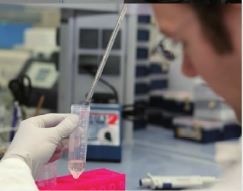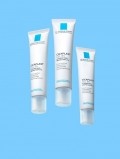Scientists discover host genome that controls skin microbiota and inflammation

John Baines, Saleh Ibrahim and their colleagues made the discovery, published in the journal Nature Communications, and say it will open the door to identify gene variants controlling skin microbiota, as well as defining their link to various skin inflammatory disorders.
The scientists say they embarked on this research as numerous studies link gut microbiota with various diseases such as obesity or diabetes; however, little is known on how gut and skin microbiota composition is controlled.
According to the team, the findings offer a promising potential for using those probiotic species for preventative and therapeutic treatment development.
Potential
"It appears that the skin flora is a phenotype that is partially controlled by the host genome variations,” explains Baines.
“The more we learn about these interactions, the more possibilities there will be for a better and more individualized treatment and prevention of skin inflammatory diseases.”
The human body contains more bacteria than human cells, and most of these bacteria comprise the normal gut and skin microbiota.
Susceptibility to skin inflammation and connected diseases are determined by immunogenetic and environmental risk factors that include resident microbial communities.
According to the researchers, whether these differences are of primary etiological importance or secondary to the altered inflammatory environment remains largely unknown.
Study
The inflammation cluster research groups led by Ibrahim of the University of Lübeck, and Baines of the MPI and CAU, correlated the genomic variations of hundreds of mice that partially develop skin inflammatory diseases with skin microbiota.
They showed evidence for host gene-microbiota interactions contributing to disease risk in a mouse model of autoantibody-induced inflammatory skin disease.
Furthermore; they identified genetic loci contributing to skin microbiota variability, susceptibility to skin inflammation and their overlap.
The majority of the identified microbiotal communities are characterized by reduced abundance being associated with increased disease risk, providing evidence of a primary role in protection from disease.




















